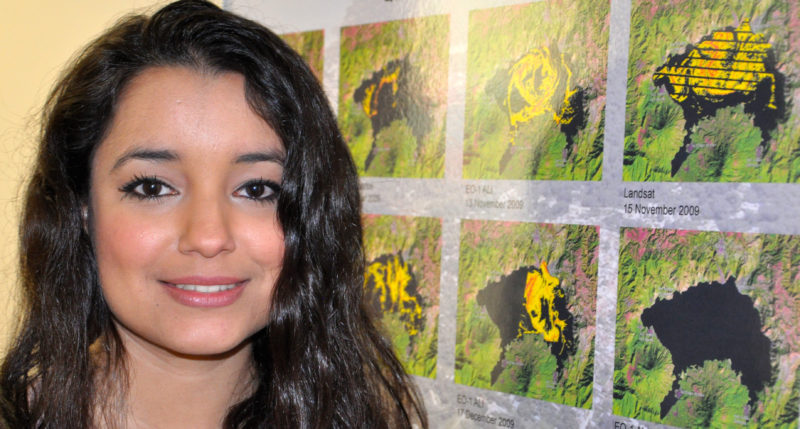In total, 11 changemakers chosen for $1.2 million worth of grants
A student at the University of Alabama in Huntsville has been selected as one of 11 changemakers to receive Microsoft and National Geographic AI for Earth Innovation Grants to apply artificial intelligence (AI) to help understand and protect the planet. Each AI for Earth Innovation Grant recipient will be awarded between $45,000 and $200,000 to support their innovative projects.

Africa Flores (Photo: UAH)
Africa Flores is a research scientist at the Earth System Science Center at the University of Alabama in Huntsville. She is originally from Guatemala, and her project will focus on developing a prototype of a harmful algal bloom (HAB) early warning system to inform Guatemalan authorities about upcoming HAB events in Lake Atitlan, a landmark of Guatemala’s biodiversity and culture.
Flores’ project, and those of the other 10 winners, were selected from an impressive pool of more than 200 applicants. The high caliber of the applications prompted Microsoft and National Geographic to increase the funding for the 11 chosen projects from the initially planned $1 million to more than $1.28 million. This furthers the organizations’ commitment to investing in novel projects that use AI to help monitor, model and ultimately manage Earth’s natural systems for a more sustainable future.
“Human ingenuity, especially when paired with the speed, power and scale that AI brings, is our best bet for crafting a better future for our planet and everyone on it,” said Lucas Joppa, chief environmental officer at Microsoft Corp. “The caliber of the applications we received was outstanding and demonstrates the demand we’ve seen for these resources since we first launched AI for Earth. We’re looking forward to continuing our work with the National Geographic Society to support these new grantees in their work to explore, discover and improve the planet.”
The grant recipients were announced at an event in December at National Geographic headquarters in Washington, D.C.


